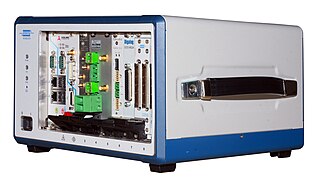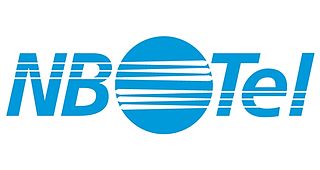A key generator (key-gen) is a computer program that generates a product licensing key, such as a serial number, necessary to activate for use of a software application. Keygens may be legitimately distributed by software manufacturers for licensing software in commercial environments where software has been licensed in bulk for an entire site or enterprise, or they may be developed and distributed illegitimately in circumstances of copyright infringement or software piracy.

Sir-Tech Software, Inc. was a video game developer and publisher based in the United States and Canada.
An umbrella organization is an association of institutions who work together formally to coordinate activities and/or pool resources. In business, political, and other environments, it provides resources and identities to the smaller organizations. In this kind of arrangement, it is sometimes responsible, to some degree, for the groups under its care. Umbrella organizations are prominent in cooperatives and in civil society, and can engage in advocacy or collective bargaining on behalf of their members.
DWG is a proprietary binary file format used for storing two- and three- dimensional design data and metadata. It is the native format for several CAD packages including DraftSight, AutoCAD, ZWCAD, IntelliCAD, Caddie and Open Design Alliance compliant applications. In addition, DWG is supported non-natively by many other CAD applications. The .bak, .dws, .dwt and .sv$ files are also DWG files.

Intuit Inc. is an American multinational business software company that specializes in financial software. The company is headquartered in Mountain View, California, and the CEO is Sasan Goodarzi. Intuit's products include the tax preparation application TurboTax, the small business accounting program QuickBooks, the credit monitoring and personal accounting service Credit Karma, and email marketing platform Mailchimp. As of 2019, more than 95% of its revenues and earnings come from its activities within the United States.

PCI eXtensions for Instrumentation (PXI) is one of several modular electronic instrumentation platforms in current use based on the Peripheral Component Interconnect bus, which includes PCI Express (PCI). These platforms are used as a basis for building electronic test equipment, automation systems, and modular laboratory instruments.

The New Brunswick Telephone Company, Limited was a telecommunications company that operated in the Canadian province of New Brunswick. The company was founded in 1888 after Bell Telephone Company of Canada's attempt to establish telephone service in the Maritimes failed and purchased Bell Canada's New Brunswick assets in 1889. In 1973, NBTel purchased the last independent telephone operator in New Brunswick, giving it a monopoly for telephone service in the province.

Marvel: Ultimate Alliance is a 2006 action role-playing video game, developed by Raven Software for the PlayStation 2, PlayStation 3, Xbox and Xbox 360, and published by Activision. The game was ported to the PlayStation Portable and Wii by Vicarious Visions, and to Microsoft Windows by Beenox. A different Game Boy Advance version was developed by Barking Lizards Technologies. A re-release version based on Xbox 360's latest edition was ported by Zoë Mode for Windows, PlayStation 4, and Xbox One, and was released in July 2016.
Netscape Web Server was an integrated software platform for developing and running transaction-oriented business applications on the web. It was developed originally by Kiva Software, which Netscape acquired in 1997.
Open Design Alliance is a nonprofit organization creating software development kits (SDKs) for engineering applications. ODA offers interoperability tools for CAD, BIM, and Mechanical industries including .dwg, .dxf, .dgn, Autodesk Revit, Autodesk Navisworks, and .ifc files and additional tools for visualization, web development, 3D PDF publishing and modeling.

The Software Alliance, also known as BSA, is a trade group of business software companies established in 1998. Its principal activity is trying to stop copyright infringement of software produced by its members. It is a member of the International Intellectual Property Alliance. Founded as the Business Software Alliance, it dropped "Business" from its name in October 2012, and styles itself "BSA | The Software Alliance".
Reqwireless was a software company specializing in delivering HTML and rich email content to Java ME/MIDP-capable cellphones. Reqwireless was acquired by Google in July 2005.
Spinner was an online music and entertainment service. An AOL Music property, it was acquired by AOL on June 1, 1999, along with Nullsoft for $400 million. Based in San Francisco, California, the website was the first Internet music service and was the largest by 2001, while offering promotional features from high-profile recording artists. In 2002, AOL combined Spinner with the former's Netscape portal to form Netscape Radio. Spinner broadcast over 100 radio stations, including Radio CMJ.
2Wire, Inc., was a computer hardware manufacturer active from 1998 to 2010 that provided telecommunications companies with home networking hardware, software, service platforms, and remote Customer Premises Equipment (CPE) management systems. The company was headquartered in San Jose, California, in the Silicon Valley. The company had employed approximately 1,600 employees globally, including 550 in R&D, sales and administration, 450 in customer care and 600 agency employees in five U.S. offices and an additional nine offices around the world by July 2010. The 2Wire HomePortal residential gateways were distributed by broadband service providers such as AT&T, Embarq, windstream and Qwest in the United States, Bell in Canada, Telmex in Mexico, BT Group in the United Kingdom, Telstra in Australia and SingTel in Singapore. In July 2010, Pace plc of the United Kingdom agreed to buy 2Wire for $475m (£307m).

Copyright infringement is the use of works protected by copyright without permission for a usage where such permission is required, thereby infringing certain exclusive rights granted to the copyright holder, such as the right to reproduce, distribute, display or perform the protected work, or to produce derivative works. The copyright holder is usually the work's creator, or a publisher or other business to whom copyright has been assigned. Copyright holders routinely invoke legal and technological measures to prevent and penalize copyright infringement.
The Tsartlip First Nation is a First Nation located on the Saanich Peninsula, in Saanich territory on Vancouver Island. They are a member of the Sencot'en Alliance fighting for Native rights. In the 1850s, they were signatories to one of the Douglas Treaties.

Zylog Systems Limited (ZSL) is an international information technology company publicly listed on the National Stock Exchange of India (NSE) & Bombay Stock Exchange (BSE). Zylog is headquartered in Chennai, India and Edison, New Jersey, United States.
buildingSMART, formerly the International Alliance for Interoperability (IAI), is an international organisation which aims to improve the exchange of information between software applications used in the construction industry. It has developed Industry Foundation Classes (IFCs) as a neutral and open specification for Building Information Models (BIM) as well as Information Delivery Specification (IDS).

Open source is source code that is made freely available for possible modification and redistribution. Products include permission to use the source code, design documents, or content of the product. The open source model is a decentralized software development model that encourages open collaboration. A main principle of open source software development is peer production, with products such as source code, blueprints, and documentation freely available to the public. The open source movement in software began as a response to the limitations of proprietary code. The model is used for projects such as in open source appropriate technology, and open source drug discovery.







